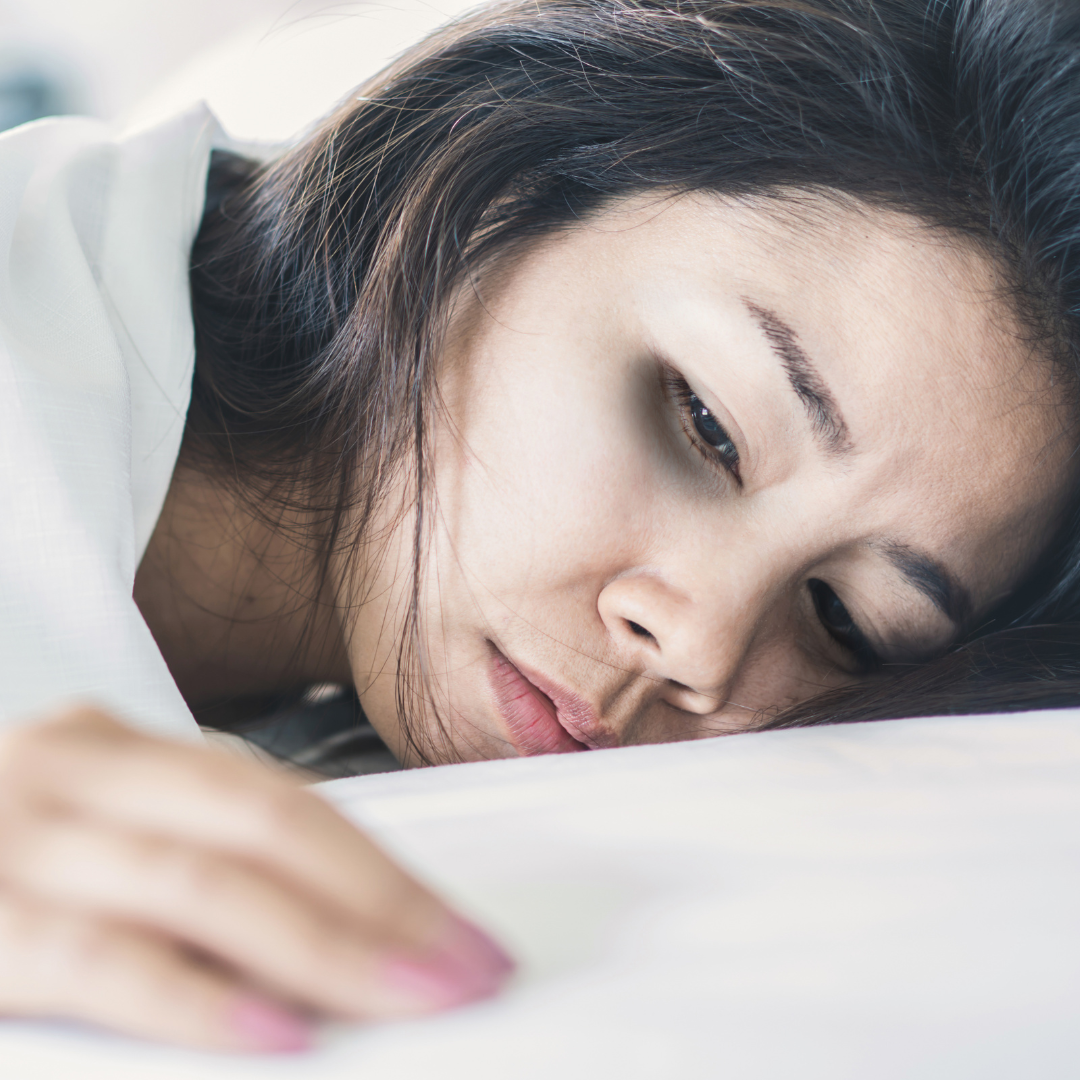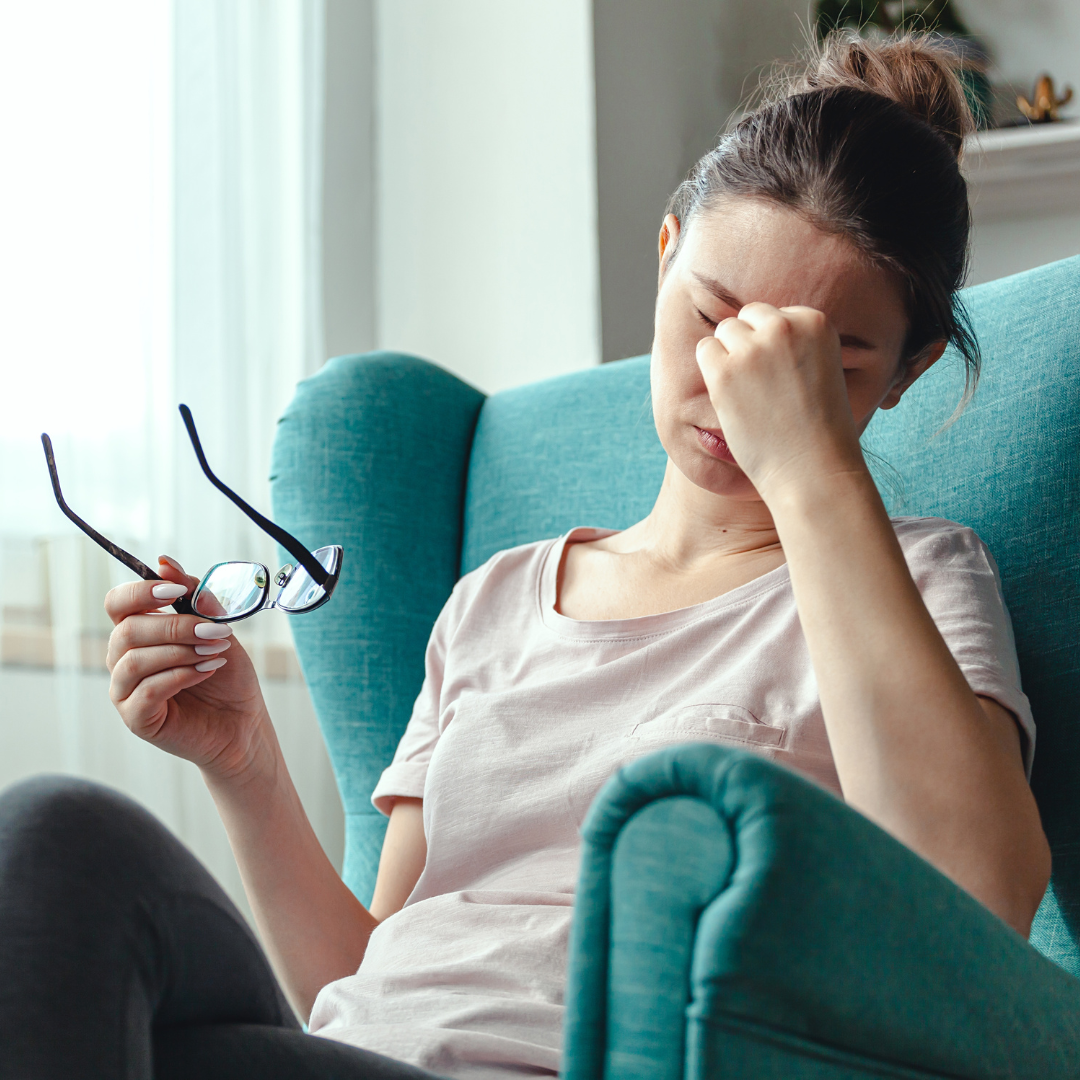
Why You’re Still Tired After 8 Hours Sleep
Do you feel exhausted, no matter how much sleep you get? Do you determinedly go to bed early to ensure a full eight hours because you feel like ‘you need it’ but then don’t feel better from it?
You may be getting enough sleep, but not the right kind of sleep. 8 hours is the average amount of sleep adults should be getting but it really varies on the body type, meaning that a Vata or Ectomorph body type would need more than a Kapha or Endomorph body type. I go through this in detail in my Morning Routine Protocol and understanding this concept is truly so important.
Restorative & Non-Restorative Sleep

Do you track your sleep? If so, you may have seen that there are 4 stages on most tracking apps and devices: awake, light sleep, rapid eye movement (REM) and deep sleep. If you’re racking up the hours in light sleep but not spending much time, or any time, in REM or deep sleep then you’re probably getting a less than adequate ‘sleep score.’
Your sleep score, or quality of sleep, will be mostly reflective of how much REM and deep sleep you are getting, because these are the two stages that are considered ‘restorative’.
REM sleep is associated with dreaming and is vital for cognitive health, such as memory and learning. Deep sleep is reparative, repairing and regrowing tissue, healing injuries, building muscle and bones and strengthening the immune system.
Not getting enough of either REM and deep sleep is considered non-restorative and can have huge implications on your health if this continues over a long period.
Causes of Non-Restorative Sleep
- Stress
- Chronic Fatigue Syndrome or Fibromyalgia
- Restless Leg Syndrome
- Insomnia
- Anxiety/Depression
- Sleep Apnea
- Lifestyle Factors (Shift Work, Travel & Jet Lag, Young Children)
- Chronic Pain
- Medications
- Hormonal Imbalances
- Blood Sugar Dysregulation
Why Is Restorative Sleep So Important?

Sleep is essential to our overall well-being. If you deprive your body of restorative sleep it can result in rapid ageing, cognitive decline, weight gain, lower metabolism, blood sugar dysregulation, chronic pain, inflammation, brain fog, hormonal imbalances, poor mental health and aggravate chronic conditions such as heart disease, high blood pressure and diabetes.
In short, sleep is CRUCIAL for keeping your body and mind working properly.
Melatonin

Melatonin is the hormone that makes you fall asleep and keeps you asleep throughout the night. Those who have issues with sleep generally have an issue with melatonin as well.
Lots of lifestyle factors can contribute to low levels of melatonin: stress, smoking, blue light exposure at night and not seeing enough daylight throughout the day all negatively affect melatonin production, as well as many health conditions, medications and imbalances within the body.
Cortisol (often referred to as the stress hormone) has an inverse ratio to melatonin. This means that when cortisol goes up, melatonin goes down. When my clients run comprehensive hormonal tests, they test their cortisol 4 times in the day, and you would be surprised at how many their circadian rhythm is completely off. Their cortisol is often super high before bed, inhibiting melatonin production and, in turn, restorative sleep, and low in the morning, causing them to feel groggy. If you’ve never tested your cortisol levels, I highly encourage you to do so. You can find the cortisol test under My Recommended Products page in my website. I don’t own any of the products, including the labs, but they’re all from trusted companies so you can rest assured that I’ve done my homework!
Adrenal Fatigue

If your cortisol levels are out of whack, you may suffer ‘burnout’ or Adrenal Fatigue. This is also known as stage 3 Adrenal Fatigue, and I’ve gone through it in detail in “The Causes of Burnout and How To Recover” post. Cortisol levels that are lower in the morning and higher in the evening indicate that you are no longer adapting to the stress in your life. Your body’s HPA Axis begins to shut down and cortisol levels are unable to be elevated enough to cope with stress.
As a result, you may suffer from low anti-inflammatory responses, low libido, lack of motivation, poor response to exercise, flu-like symptoms, fatigue, reoccurring infections, melasma, digestive issues and the inability to regulate systems in the body, such as blood sugar. You may be at risk of developing Addison’s disease if you don’t address adrenal fatigue.
In short, you need to build the adrenals back up again and good quality, restorative sleep is one of the most important factors for overcoming adrenal fatigue.
How To Get More Restorative Sleep
You need to improve your sleep hygiene, regardless of whether your poor sleep is down to bad habits or because of an underlying health issue. When you start to improve your sleep, overcoming health concerns or reaching health goals are so much more achievable. In my Private Practice, I often tell my clients that sleep is one of those things that they need to get right if they really want to overcome their health issues. This is because the body needs deep, restorative sleep, in order to repair, rejuvenate and heal itself.
If you do think that an underlying health condition is causing non-restorative sleep then you need find the root cause. The best way to do this is to run at-home functional lab tests and work 1:1 with an integrative health practitioner who can interpret your results and tailor a wellness protocol to help you overcome your imbalances. You can work with me in my Private Practice, or any other practitioner that you trust.
Regardless, if your sleep quality isn’t good and you’re not waking up feeling refreshed, then you need to start improving your sleep hygiene now.
Improving Your Sleep Hygiene

The best restorative sleep happens between 10pm to 6am, with emphasis on the hours before 12am. Try getting into bed earlier to train your body that it needs to begin to rest earlier. Do this even if you don’t fall asleep right away! The more you practice the better your sleep will become.
Make sure your environment is optimised for good sleep: dark, cool and quiet. Don’t nap during the day, especially after 3pm as this will seriously inhibit your ability to fall asleep into a deep, restorative sleep. Also, if you’re a serial-napper, you need to ask yourself why… adults shouldn’t need naps throughout the day so, the question is, why do you feel the need to? Do you have imbalanced blood sugar? Hormonal imbalances? Digestive issues that are causing a complete crash in energy levels in the afternoon?
Lastly, you need an evening routine as much as you need a morning routine (and you really need a morning routine, see why here). Included in the Morning Routine Protocol is the perfect Evening Routine to optimise your sleep. A restorative night’s sleep starts with a good evening routine, a successful morning begins with a restorative sleep and a productive and positive day needs a health-focussed morning routine.
Get your sleep and mornings right and the rest will follow!
References:













Leave a comment